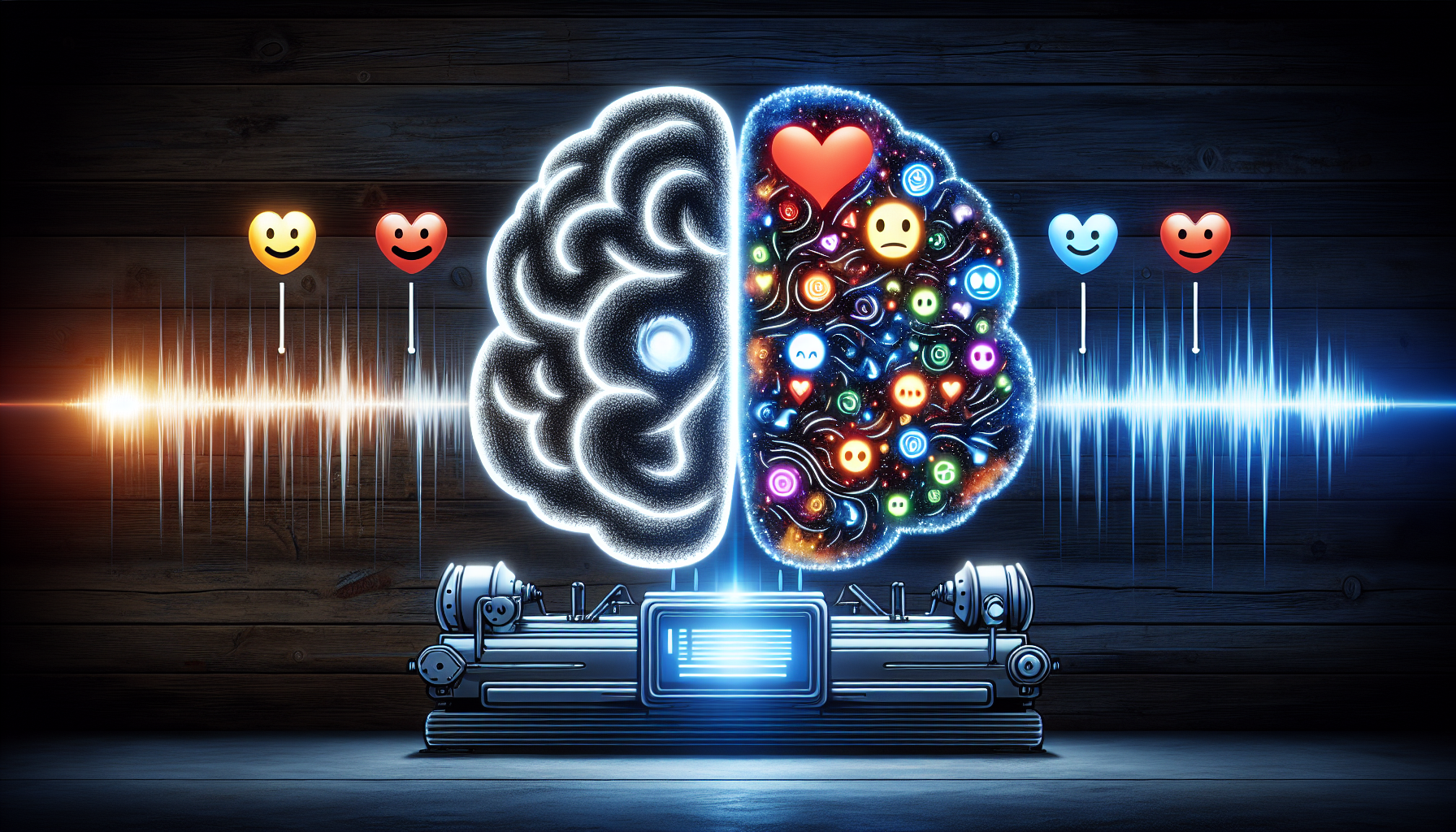
## The Role of Emotional Intelligence in Boosting AI-Enhanced Marketing Strategies
Artificial intelligence (AI) has advanced remarkably in recent times. Its ability to converse and generate content has reached levels that can closely mimic human behavior. But can AI be leveraged for creating genuine brand communication? This article delves into incorporating emotional intelligence into AI-powered marketing tactics.
### Defining Emotional Intelligence in Marketing
Emotional intelligence is the capacity to manage one’s own emotions while understanding those of others. It includes core elements such as self-awareness, self-regulation, empathy, and social skills. In the marketing realm, emotional intelligence is used to form emotional bonds with consumers, aiming to foster trust and loyalty. This emotional connection can surpass the logical reasoning of a consumer, thereby swaying their purchasing decisions.
### The Importance of Emotional Intelligence in Marketing
Emotional intelligence in marketing taps into consumer psychology. By comprehending and empathizing with customer needs, marketing messages can resonate deeply. This connection positively impacts how consumers perceive your brand or product, helping to build stronger relationships and boost sales over time.
### The Relationship Between Emotional Intelligence and AI
To simplify, AI currently lacks true emotional intelligence. While modern AI models can convincingly imitate emotional intelligence, they essentially arrange words in a logical flow. Think of the algorithm and training data as a puppet and a puppeteer—the act may appear genuine, but it is not.
Will AI ever achieve emotional intelligence? Research suggests that AI could develop emotional awareness in the future, but the timeline remains uncertain. Fortunately, true emotional comprehension may not be essential. If AI acts convincingly enough, it may suffice for marketing needs.
### Implementing Emotional Intelligence in AI Marketing
Emotional intelligence can optimize AI models whether they are used for creating marketing content, predicting customer behavior, or adjusting promotions based on demand. Machine learning (ML) models already surpass human capabilities in some time-sensitive tasks, indicating the potential for further enhancements.
For instance, an ML model could send personalized follow-up messages based on customer interactions with promotional emails. Given the prevalence of email as a communication channel, handling responses manually at scale is infeasible. AI can swiftly analyze large volumes of unstructured data, using specific data points to accurately gauge individual moods and needs.
With ample data, generative or natural language processing models could convincingly emulate emotional intelligence in marketing. High-quality training data enables the algorithm to detect subtle nuances, interpreting customer emotions in real-time.
### Advantages of Emotional Intelligence in AI Marketing
The reason why 90% of senior executives in marketing companies plan to adopt generative AI by 2025 is clear. Companies already using this technology have seen revenues grow by up to 15%, and sales ROI improve by 10%-20%. Indicators suggest this technology will soon become a standard.
AI-driven marketing campaigns already outperform traditional methods as algorithms operate faster, discover hidden patterns, and adapt to market shifts in real-time. Equipping these algorithms with emotional intelligence can further boost sales, customer loyalty, and brand reputation.
### Crafting Genuine Brand Communication with AI
Rather than developing a model capable of experiencing and understanding emotions, focus on creating one that can convincingly identify, interpret, and convey emotions. Success lies in making people believe that your algorithm genuinely understands and empathizes with them.
People value feeling heard, even when engaged with an algorithm. A study on the “emotional feedback loop” between an AI-driven robot and human participants found that emotions intensified when people saw the machine reflecting their own feelings. This indicates that humans respond positively to emotional reinforcement.
To create authentic brand messages with emotionally intelligent AI, emphasize positive emotions while subtly redirecting negative ones. When your model showcases understanding and compassion, it can significantly influence purchasing behaviors and brand perceptions.
### Achieving Success with AI Systems
Although AI has yet to achieve true emotional intelligence, it can still be highly effective for authentic brand communications in marketing. Concerned about uninformed or insensitive responses? Consider incorporating a human-in-the-loop to review messages or conduct audits. This additional step can screen out aggressive or irrelevant content before reaching customers.
## Conclusion
Emotional intelligence is a powerful asset in marketing, enabling deeper connections with consumers. While AI may not possess genuine emotional intelligence yet, it can adeptly simulate it, enhancing AI-driven marketing strategies. By reflecting customer emotions and ensuring empathetic communication, businesses can use AI to drive sales and cultivate loyalty.
## Question and Answer Session
**Q1: What is emotional intelligence in marketing?**
A1: Emotional intelligence in marketing entails understanding and managing your emotions while empathizing with your customers’ emotions to establish a connection that builds trust and loyalty.
**Q2: Can AI truly have emotional intelligence?**
A2: Currently, AI lacks true emotional intelligence. It can mimic emotional responses convincingly using extensive datasets and complex algorithms but does not genuinely experience or understand emotions.
**Q3: How does emotional intelligence enhance marketing strategies?**
A3: Emotional intelligence enhances marketing strategies by making messages resonate deeply with consumers, positively affecting their perception of your brand or product, and driving sales.
**Q4: How do AI models apply emotional intelligence in marketing?**
A4: AI models apply emotional intelligence by analyzing vast datasets to gauge customer moods and needs, enabling personalized messages and empathetic interactions with customers.
**Q5: Why do senior executives support generative AI for future marketing?**
A5: Senior executives support generative AI because it has demonstrated significant returns on investment, leading to revenue increases of up to 15% and improved sales ROI by 10%-20%.
**Q6: What role does a human-in-the-loop play in AI-driven marketing?**
A6: A human-in-the-loop reviews or audits AI-generated messages to ensure they are well-informed and empathetic, preventing any aggressive or irrelevant content from reaching customers.
**Q7: Can people form emotional connections with AI?**
A7: Yes, studies have shown that people’s emotions can intensify when AI reflects their feelings, indicating that humans respond well to emotionally intelligent interactions, even with machines.
